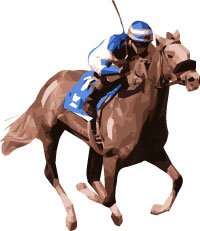There are many factors that can influence the hydration status of sports people, such as social activities, diet, climate and activity level. It is important for an athlete to be well hydrated prior to exercise, as dehydration (or hypohydration) can lead to a decrease in performance and also can increase the risk of heat illness.
There are many methods for determining hydration status, including monitoring body mass changes, measuring various blood markers, and analysis of urine (urinalysis).
Body Weight Changes
An effective and simple way to determine the level of dehydration is to monitor body weight changes. Taking a body weight measure each morning (after emptying the bladder) can show a pattern of hydration over time. If you wish to determine how much fluid is lost during exercise, body weight can be measured before and after exercise. With this testing method, other factors such as fluid intake and fluid and weight losses through going to the toilet must also be taken into account. To determine amount of sweat loss during exercise, start with the measure of body mass after exercise minus the weight before. Any volume of drinks taken during exercise will need to be added to this value, and toilet losses subtracted. Therefore:
sweat loss = (weight before - weight after) + fluid intake - toilet losses
When measuring body mass, it is usually to measure semi-nude, and to towel off any sweat on the skin after exercise. For more about measuring sweat loss, see the sweat loss testing method. You can also analyze the sweat once you have collected it using sweat patches, and look at the site specific sweat rate.
 urine testing for measuring hydration
urine testing for measuring hydrationUrinalysis
Urinalysis has been shown to be a most valid and reliable method for determining moderate changes in fluid balance. The most simple method is to look at the urine color, which uses a color scale to compare to the urine. Basically the darker the urine, the more dehydrated you are (more details on how to measure urine color). Other, more scientific urine tests, such as urine specific gravity, urine osmolarity, and urine color are only minimally better at determining hydration level (details on measuring specific gravity).
Interpretation
If the hydration testing shows that the athlete is not drinking enough fluid to maintain adequate hydration levels, then advice may be given to increase fluid intake. Such changes as making a drink bottle more readily available or making the fluid more palatable can help in hydration strategies. If competition is to be held in hotter and or more humid conditions, the hydration strategies need to accommodate for these changes.
Related Pages
- Urine Color Test — Are you are drinking enough?
- Testing Hydration from the fitness testing section
- Measuring Body Mass
- Urine Specific Gravity measurement
- Monitoring body temperature


 Current Events
Current Events